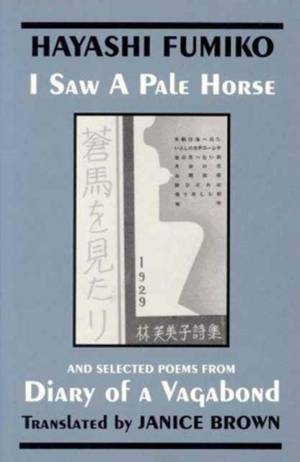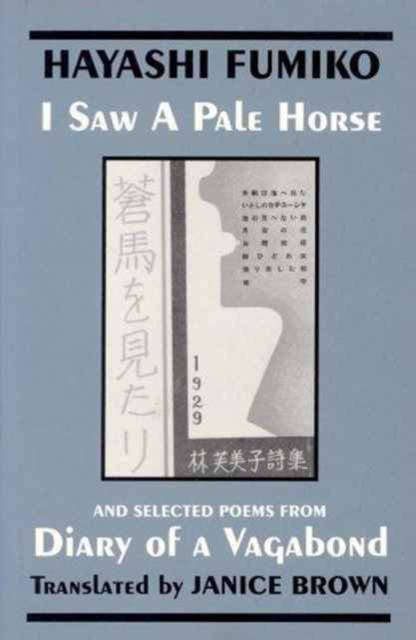
- Afhalen na 1 uur in een winkel met voorraad
- Gratis thuislevering in België vanaf € 30
- Ruim aanbod met 7 miljoen producten
- Afhalen na 1 uur in een winkel met voorraad
- Gratis thuislevering in België vanaf € 30
- Ruim aanbod met 7 miljoen producten
Zoeken
I Saw a Pale Horse and Selected Poems from Diary of a Vagabond
Hayashi Fumiko
€ 20,95
+ 41 punten
Uitvoering
Omschrijving
Hayashi Fumiko, one of the most popular prose writers of the Showa era, began writing as a down-and-out poet wandering the streets of 1920s Tokyo. In these translations of her first poetry collection, I Saw a Pale Horse (Aouma wo mitari) and Selected Poems from Diary of a Vagabond (Hôrôki), Fumiko's literary origins are colorfully revealed. Little known in the west, these early poetic texts focus on Fumiko's unconventional early life, and her construction of a female subject that would challenge, with gusto and panache, accepted notions not only of class, family, and gender but also of female poetic practice.
Specificaties
Betrokkenen
- Auteur(s):
- Vertaler(s):
- Uitgeverij:
Inhoud
- Aantal bladzijden:
- 168
- Taal:
- Engels
- Reeks:
Eigenschappen
- Productcode (EAN):
- 9781885445865
- Verschijningsdatum:
- 30/04/2011
- Uitvoering:
- Paperback
- Formaat:
- Trade paperback (VS)
- Afmetingen:
- 140 mm x 216 mm
- Gewicht:
- 204 g

Alleen bij Standaard Boekhandel
+ 41 punten op je klantenkaart van Standaard Boekhandel
Beoordelingen
We publiceren alleen reviews die voldoen aan de voorwaarden voor reviews. Bekijk onze voorwaarden voor reviews.











